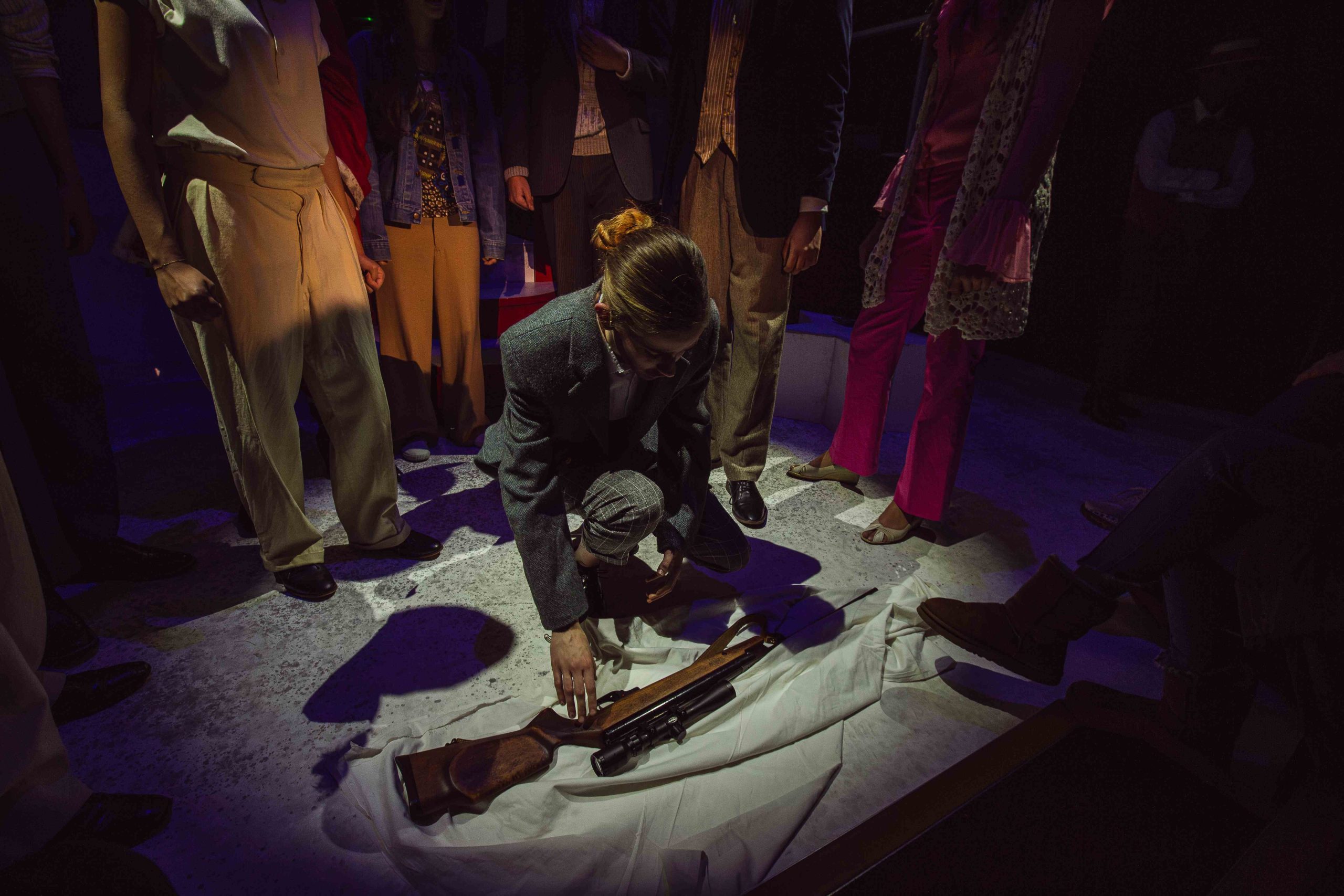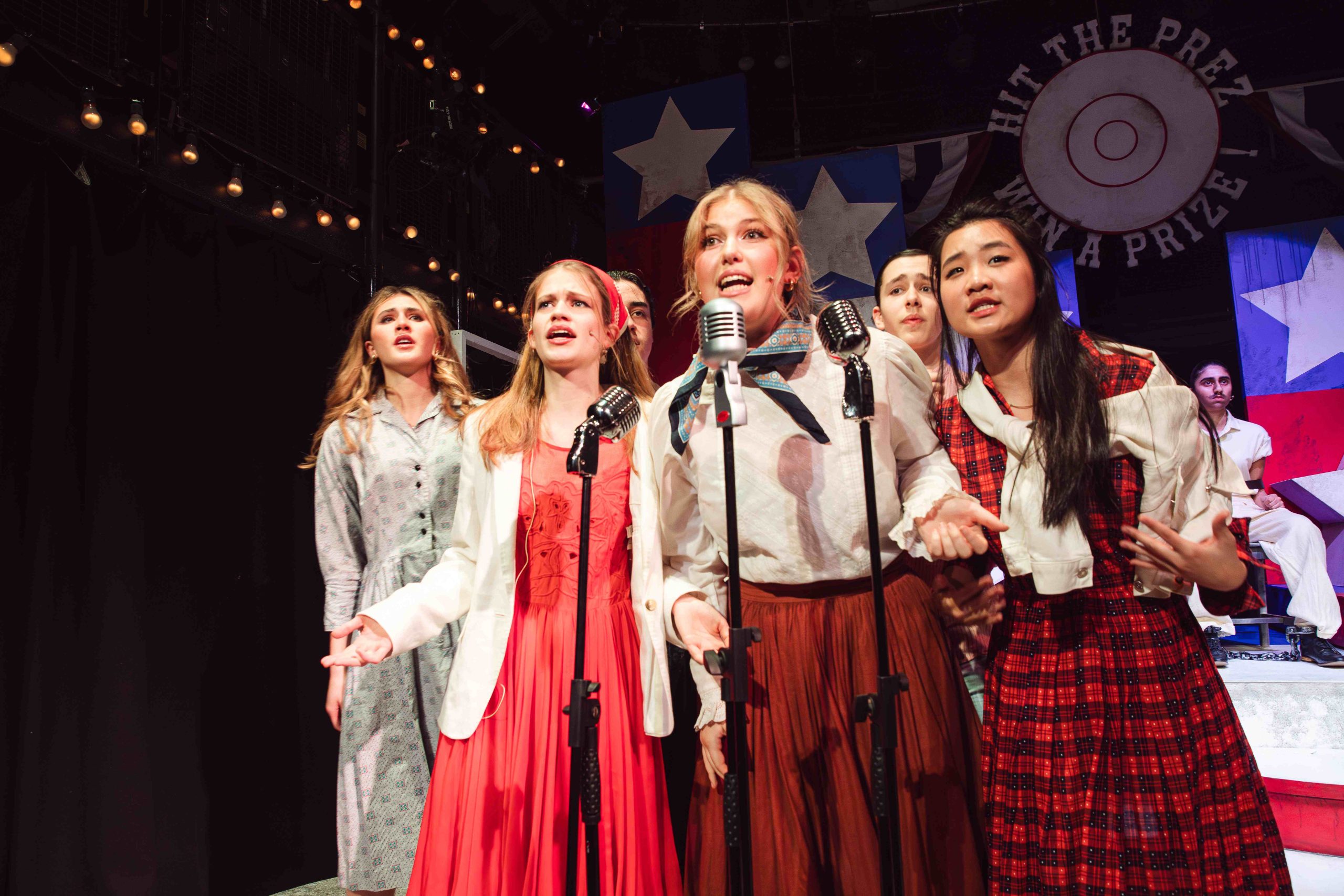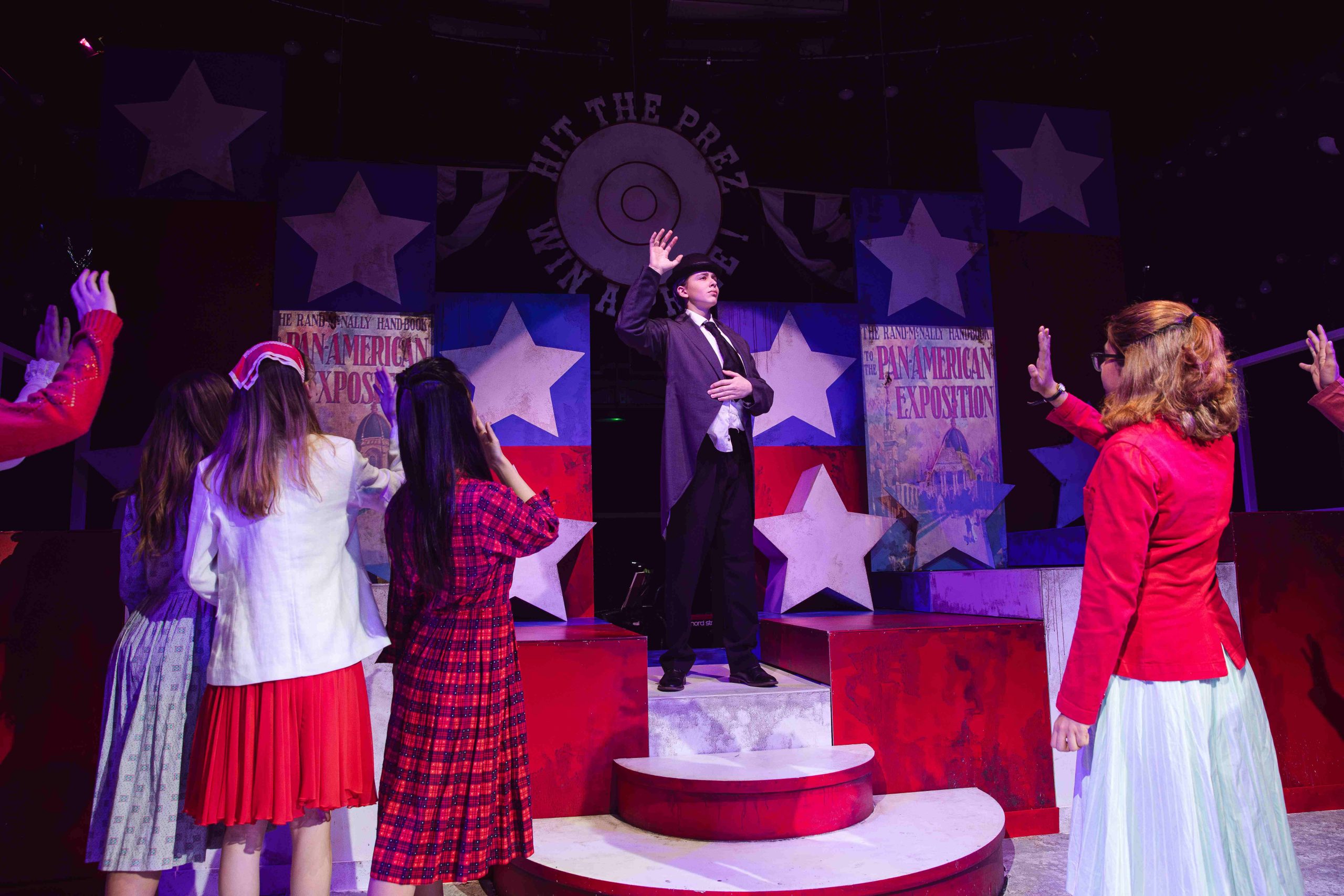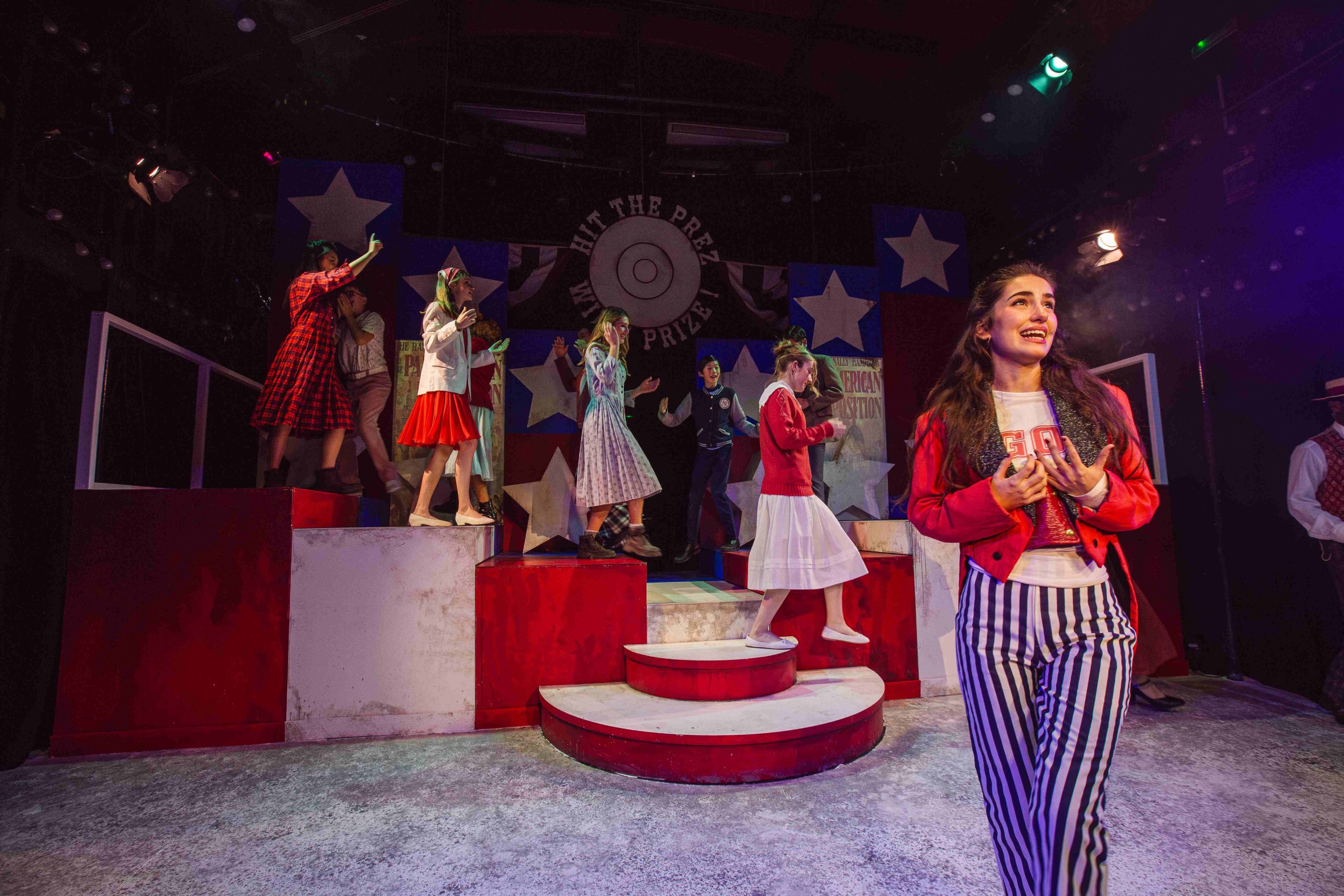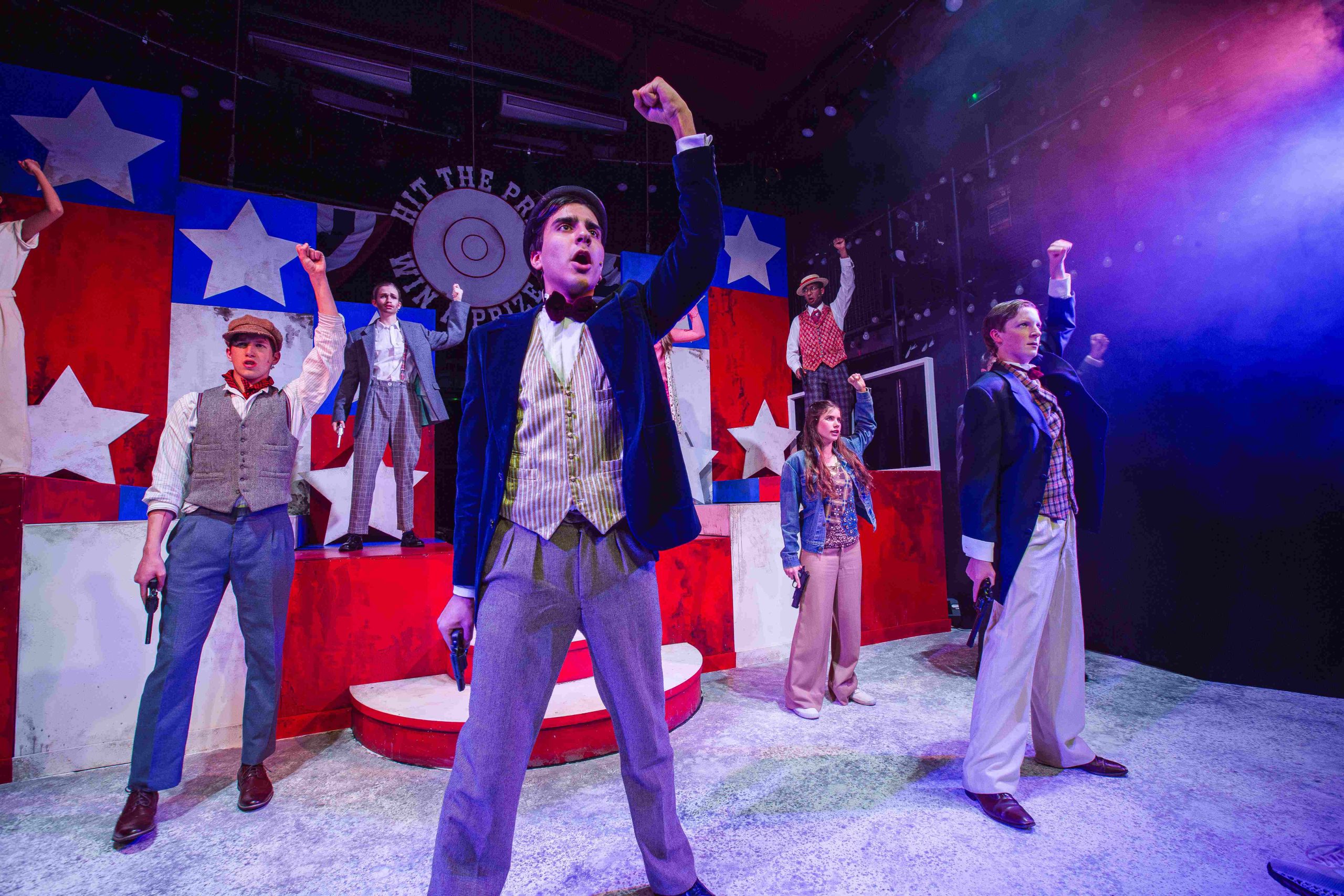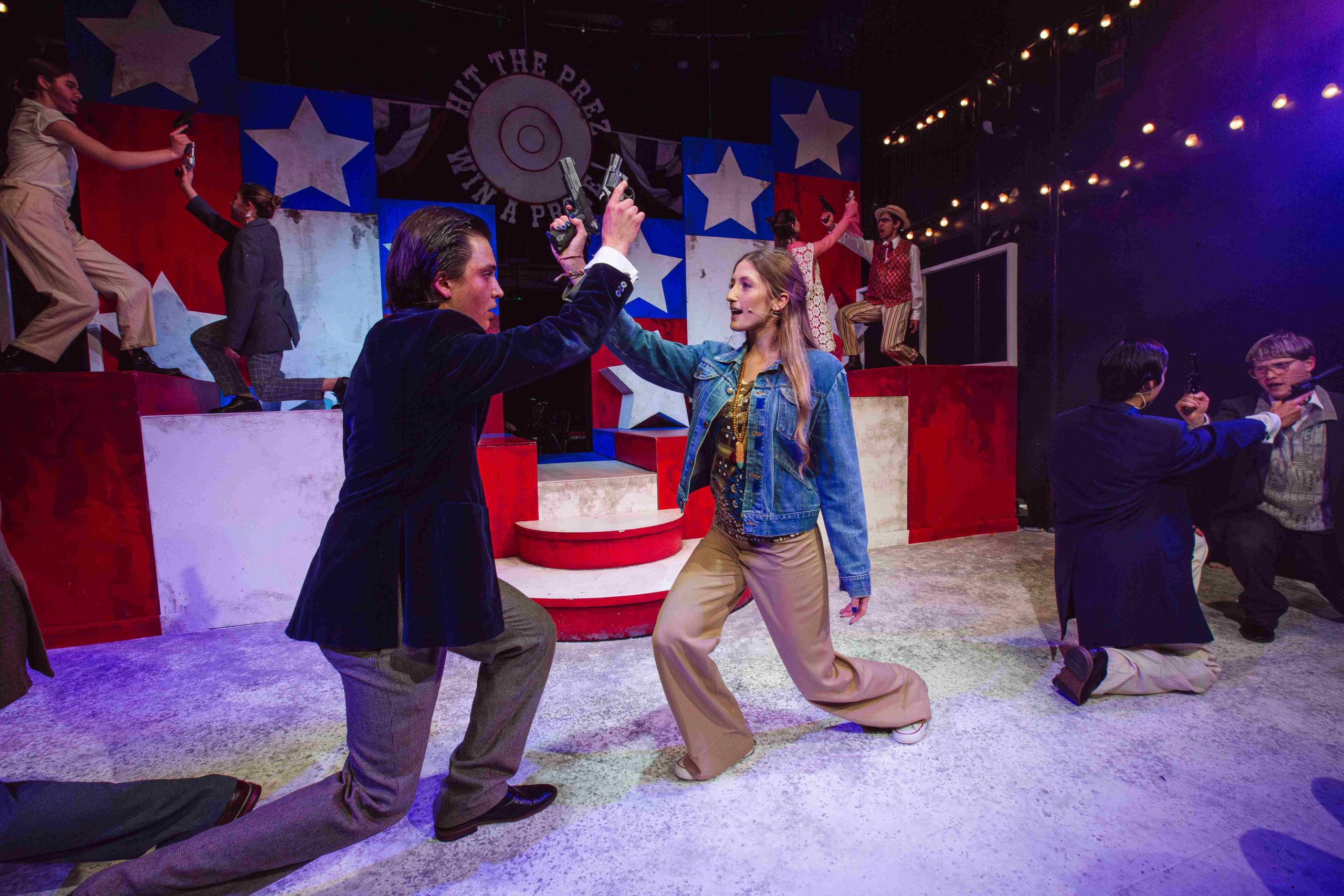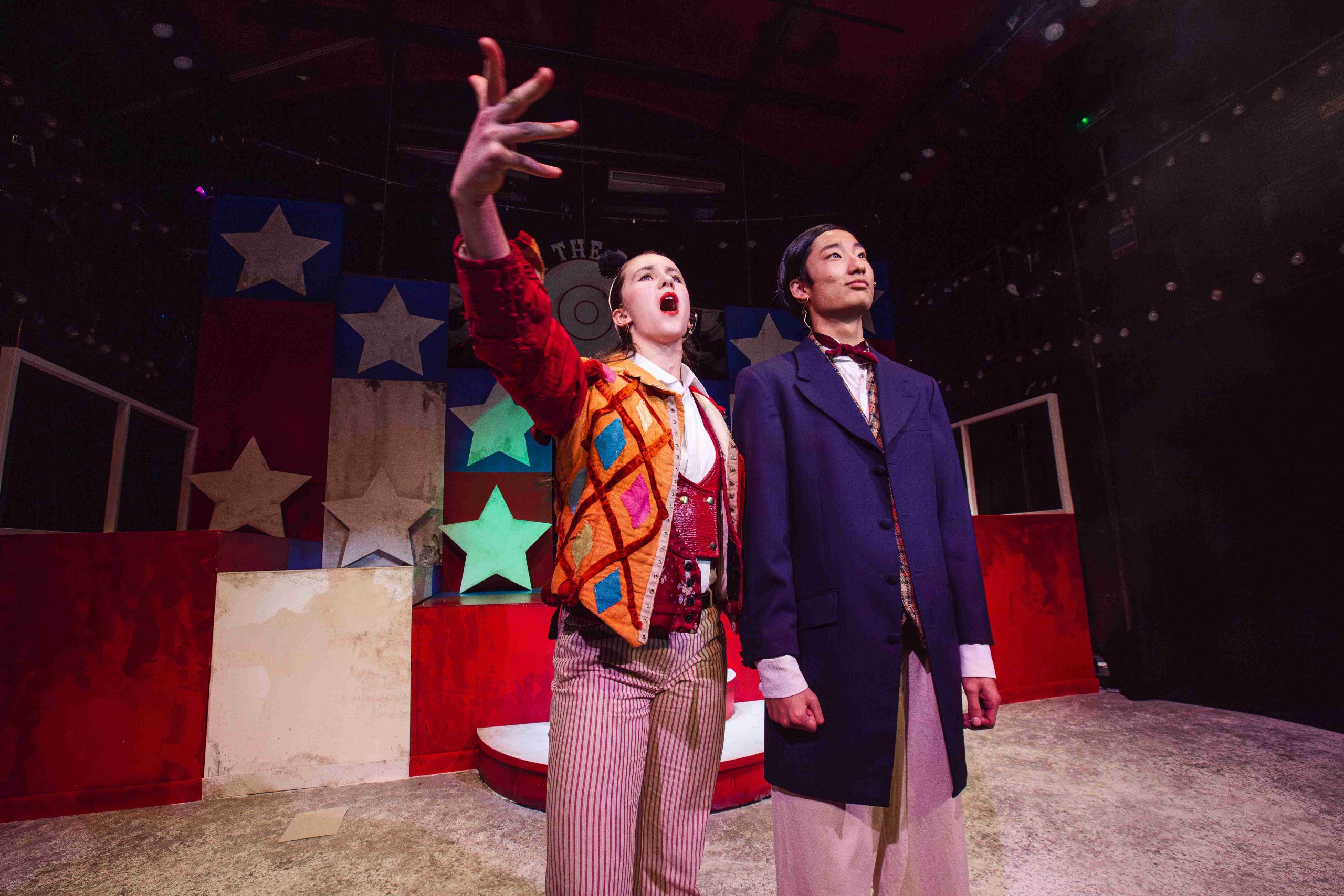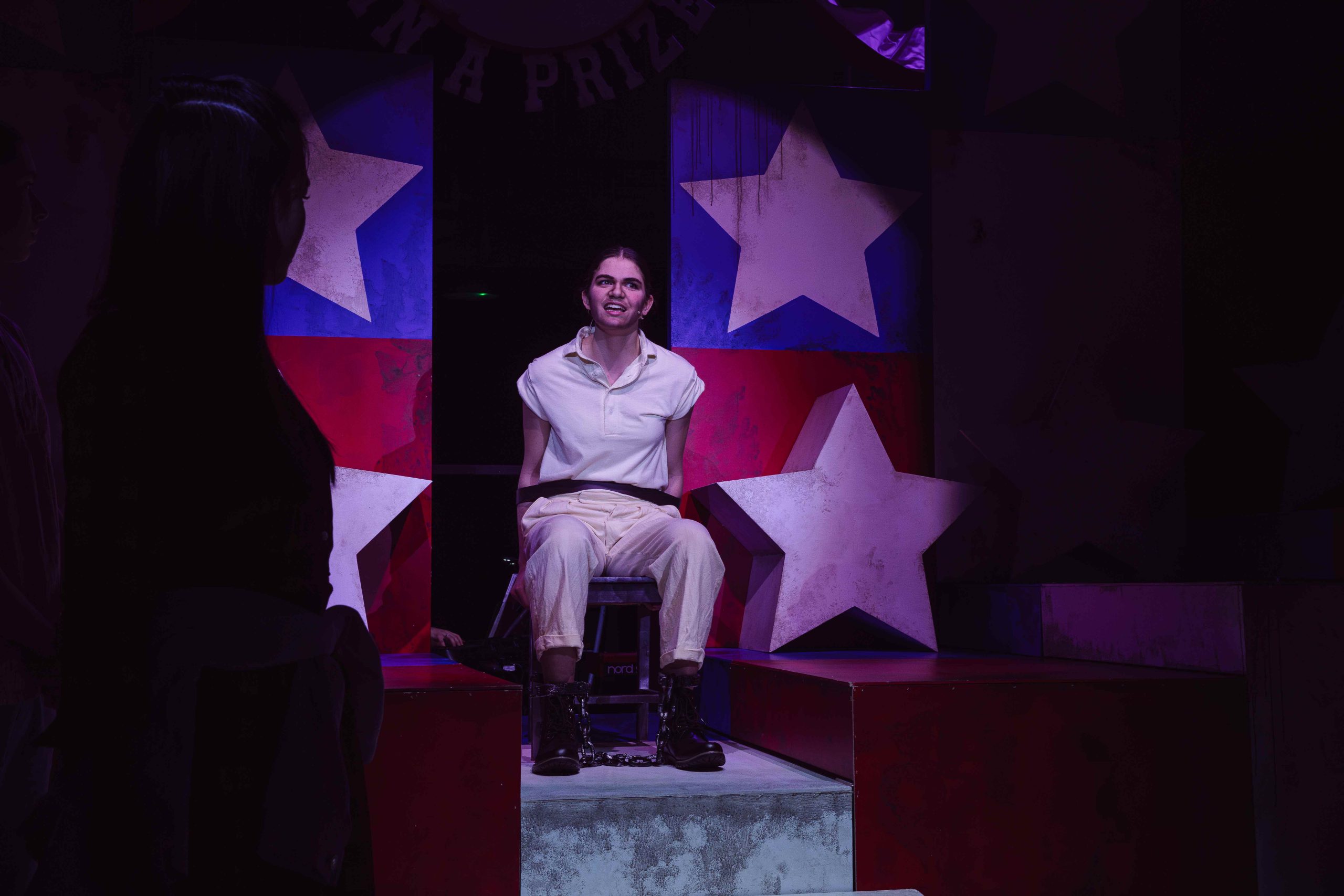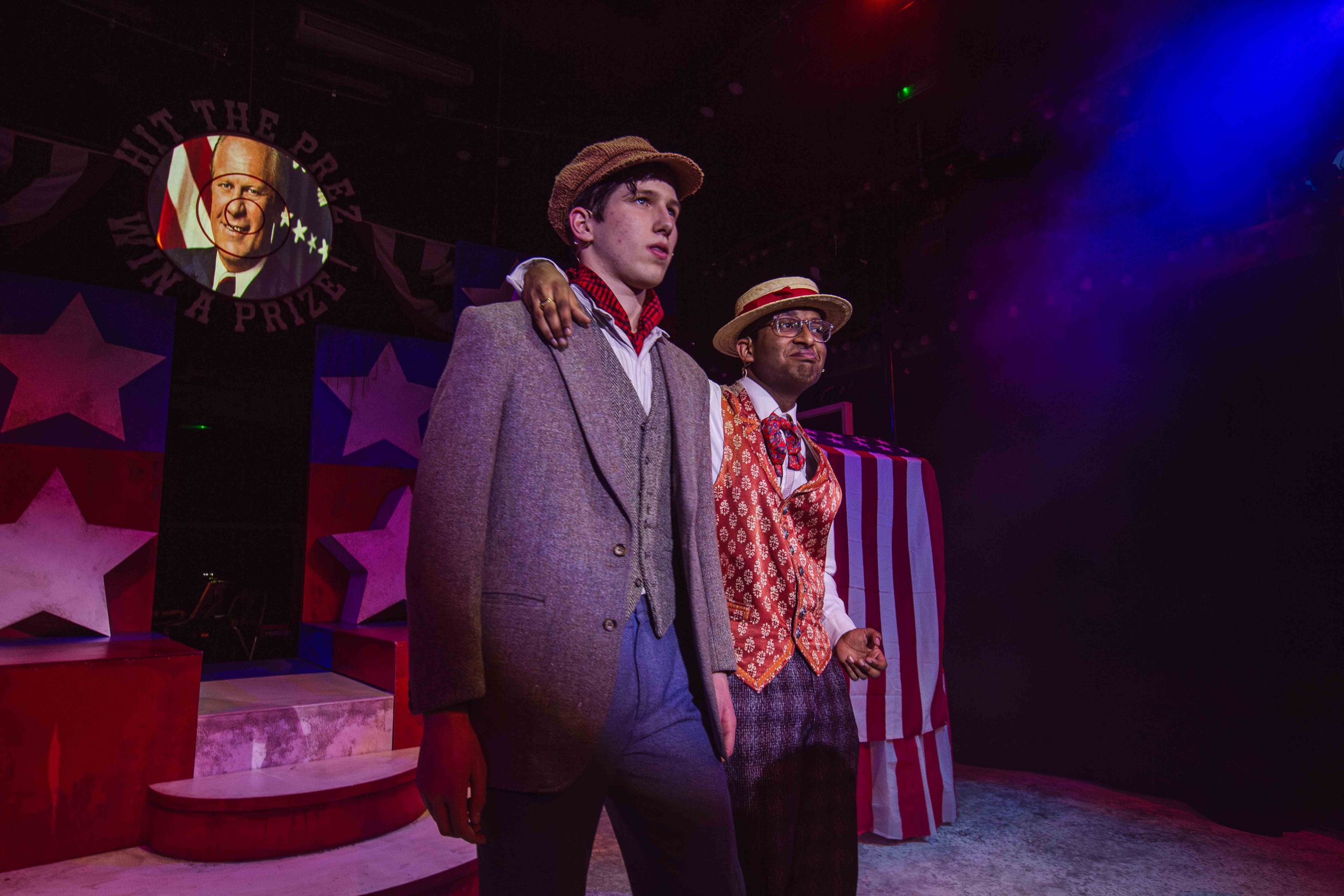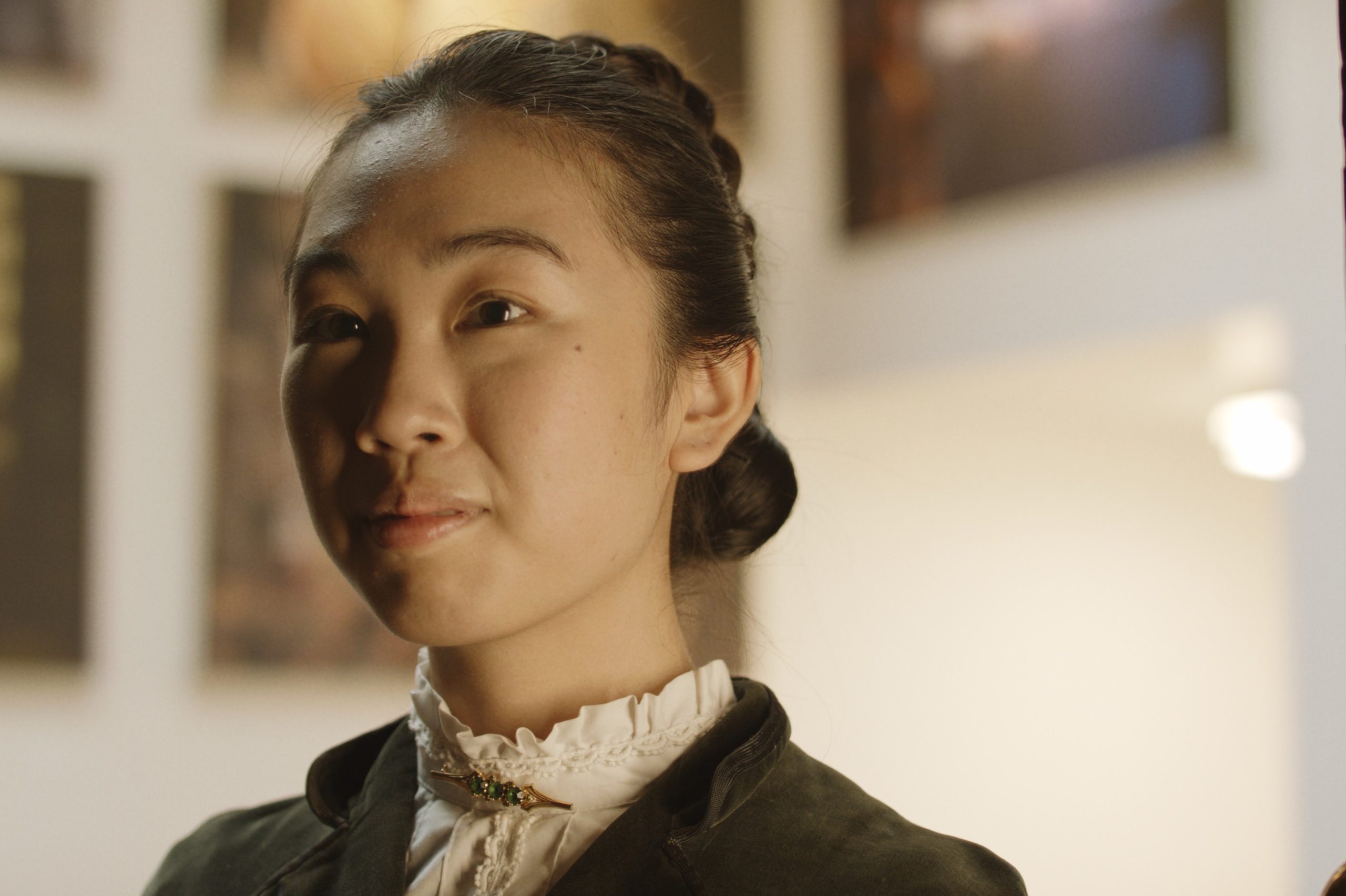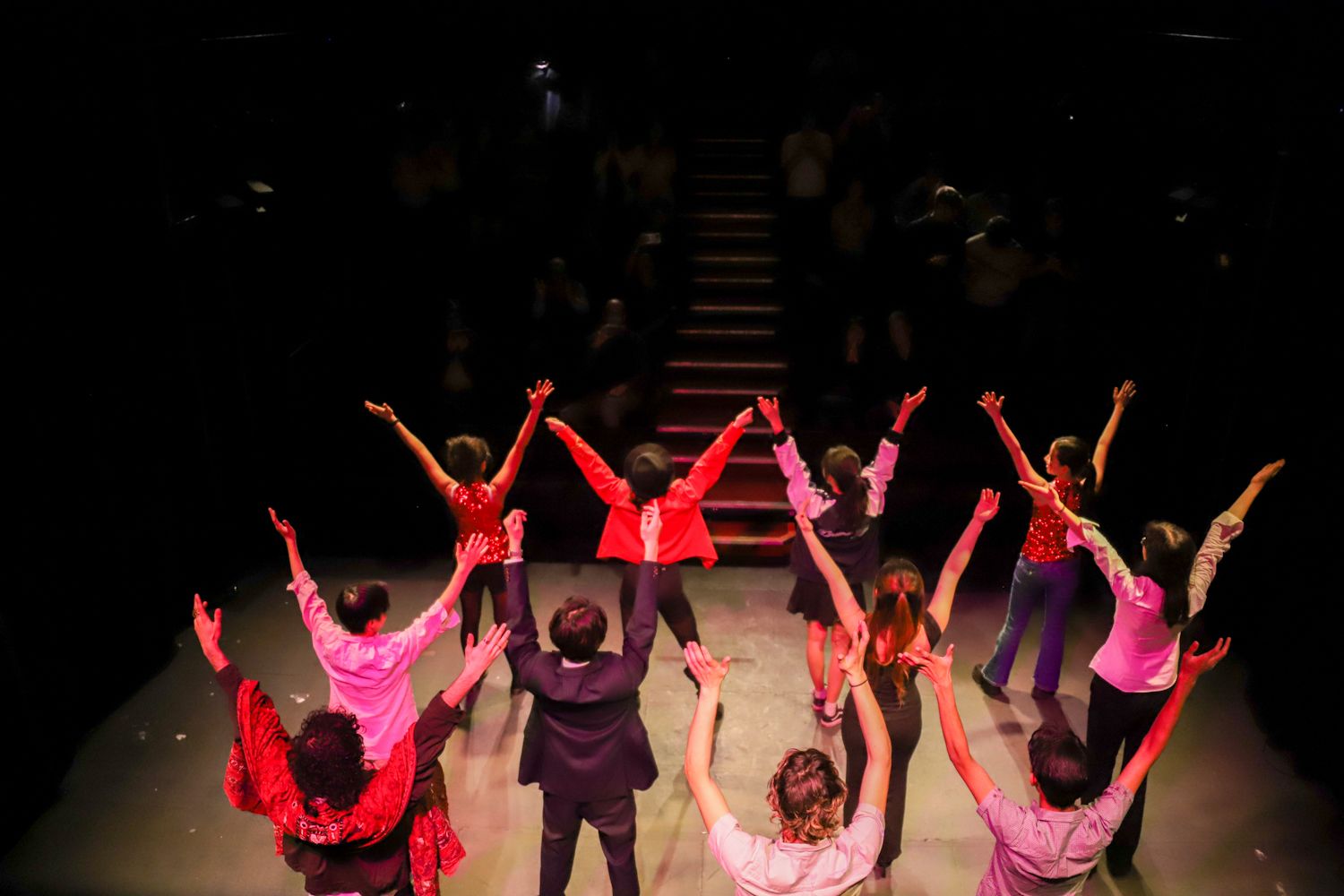Lent Term musical takes audiences on a journey into the complexities of the composer's music, as well as those of the human soul
Never ones to dodge a challenge, the Westminster Drama Department chose Stephen Sondheim’s ‘fiendishly difficult’ Assassins as the 2025 musical production. Staged over four nights and with two casts in February 2025, pupils brought to life the dark and unsettling musical about the infamous figures who attempted (some succeeding) to assassinate American presidents.
Playing in the live band was Blake (Remove, HH), who in the show’s programme wrote of ‘Assassins and the American Dream’.
Here we publish Blake’s essay, with pictures from the show.
In reviewing the Chichester production of Assassins in 2023, The Guardian wrote the show “underlines the way in which these oddballs, left-behinds and psychopaths invert the American dream, turning their failures into righteous fury, and getting their 15 minutes of fame through infamy.” Like The Great Gatsby, Death of a Salesman, or Fear and Loathing in Las Vegas, this Sondheim / Weidman musical collaboration explores the darker side of American quests for fulfillment.
Librettist John Weidman puts the emphasis somewhat differently than The Guardian critic. In a 1990 interview with the New York Times, he said “we found out as we looked at [the assassins] that we were not writing about shooting at the president of the United States…what’s provocative and upsetting and disturbing is the lives they led up to that point and what those lives reveal.”
To many American ears, the chorus of the first song of Assassins, “Everybody’s Got the Right to be Happy,” sounds deeply familiar and completely false at the same time. As part of their study of history, American school children usually learn by heart a few key phrases from the 1776 Declaration of Independence. Perhaps the most well-known phrase is the following:
We hold these truths to be self-evident, that all men are created equal, that they are endowed by their Creator with certain unalienable Rights, that among these are Life, Liberty and the pursuit of Happiness.
Thomas Jefferson probably borrowed the last phrase from John Locke (a 17th century OW), who wrote “the highest perfection of intellectual nature lies in a careful and constant pursuit of true and solid happiness”. But since his time, popular American culture has refashioned this Enlightenment ideal into a secular creed where happiness itself was the right, if not the destiny, of every citizen. The accompanying baggage of the original thought – that happiness which was true and solid had to be attained by careful and constant pursuit, i.e. not provided on a silver platter – was gradually discarded, perhaps as non-commercial.
Weidman studied at Yale Law School. He knew the US Constitution better than most. He also knew what many Americans believed they deserved, legally or not. “The American Dream”, typically interpreted as material success, if not fame, fortune, celebrity and impossible love, has always been high on that list.
Many narratives of the American Dream give a key role to guns. Americans watch films of cowboys conquering the Wild West, shooting rifles and revolvers to defend their homes and families against wild animals, bandidos and Apaches. In history class, they hear about the brave colonial freedom fighters in Lexington and Concord, aiming their muskets at the evil British redcoats in 1775. Raoul Duke waves around his Smith & Wesson Model 19 whilst high in the Mojave Desert in Fear and Loathing in Las Vegas. Gatsby dies from a pistol shot.
In his collection of lyrics and reflections, Look, I Made a Hat, Stephen Sondheim included notes from the writing of Assassins, one of which states: “Ours is a gun culture.” Many Americans who know nothing else about their country’s Constitution can describe the Second Amendment in detail, as it spells out the right to bear arms. One might find the opening scene of Assassins implausible, as it shows seemingly random individuals being able to purchase a gun for any reason. But this is a fairly realistic portrayal of some US regions to this day. Hearing “The Gun Song”, one might wonder who would sing about a gun? Many Americans have done just that, from Ethel Merman to Lynyrd Skynyrd to Jimi Hendrix.
So America has many people who believe they have a right to be happy, but often are not. What’s more, at least some of these people believe guns can right wrongs, and guns are readily available. What happens then? As Sweeney Todd puts it, “Well, that’s the play, and he wouldn’t want us to give it away.”
On the brighter side, one might say that one American who fully embodied the Lockian ideal of “careful and constant pursuit of true and solid happiness” was Stephen Sondheim himself. He has crafted an immense catalog of astounding quality. Many know him as the author of “Send in the Clowns” and “Being Alive”. But what can be missed is his striving to portray human complexity since he first arrived on Broadway in 1957 as the lyricist of West Side Story. One of the less famous songs from that show, “Gee, Officer Krupke”, explores the psycho-social forces driving young people to join a violent gang.
“Rose’s Turn” in Gypsy is regarded as a high point in musical theatre writing, showing the emotional breakdown of a stage mother, while “Getting Married Today” from Company plumbs anxiety with a comedic touch. Perhaps the most direct forebear of Assassins is Sweeney Todd, which portrays how wronged people can become killers. “Assassins is Sweeney Todd,” said Sondheim. “It’s about righting a wrong, and how, if you do it the wrong way, you’re in a lot of trouble.”
Giving Sondheim the last word, he posed two questions about this show: “How could one inconsequential angry little man cause such universal grief and anguish? More important, why would he? That’s what Assassins is about.”
Related News Stories

